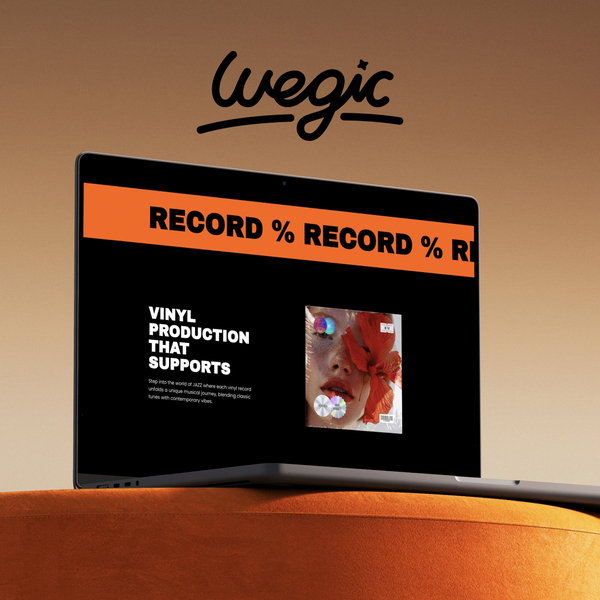How to When the World Wide Web Was Created
When the World Wide Web Was Created Explained
When the World Wide Web Was Created
In today’s digital age, having a strong online presence is crucial for the success of any small business. With the majority of consumers turning to the internet to research products and services, having a website is no longer just an option – it’s a necessity. However, many small business owners may feel overwhelmed at the prospect of creating a website, especially if they lack technical skills or the budget to hire a professional web designer. That’s where website builders for small business come in.

When the World Wide Web Was Created in 3 Steps
When the World Wide Web Was Created
No code web builders, also known as visual development platforms, are designed to simplify the website creation process by eliminating the need for coding. Instead of writing complex HTML, CSS, and JavaScript code, users can simply drag and drop pre-designed elements, such as text, images, buttons, and forms, onto a canvas to create their desired layout. This intuitive interface makes it easy for users to visualize their website structure and design in real-time, making it ideal for those who are not familiar with coding languages.
One of the key advantages of using a no code web builder is the time and cost savings it offers. Traditional web development projects can be time-consuming and expensive, as they often require hiring a professional web developer or designer to code the website from scratch. With a no code web builder, individuals and businesses can create a website in a fraction of the time and at a fraction of the cost. This makes it an ideal solution for small businesses, startups, and individuals who are looking to establish an online presence quickly and affordably.
Another major benefit of using a no code web builder is the flexibility and customization it offers. With a wide range of pre-designed templates, themes, and modules to choose from, users can easily create a unique and personalized website that reflects their brand identity and vision. Additionally, most no code web builders come equipped with advanced features, such as e-commerce integration, SEO optimization, and mobile responsiveness, allowing users to create a professional-looking website that meets their specific needs and goals.
Furthermore, no code web builders are designed to be user-friendly and accessible to individuals of all skill levels. Whether you are a complete beginner or an experienced web developer, you can easily navigate the platform and create a website that meets your requirements. Most no code web builders come with step-by-step tutorials, customer support, and community forums to assist users in building their websites effectively. This level of support and guidance ensures that users can create a high-quality website without feeling overwhelmed or intimidated by the process.
In addition to their ease of use and cost-effectiveness, no code web builders are also beneficial for maintaining and updating websites in the long run. Traditional websites built with custom code often require ongoing maintenance, updates, and bug fixes, which can be time-consuming and expensive. No code web builders simplify the maintenance process by providing users with intuitive tools for editing, updating, and adding new content to their websites. This eliminates the need for ongoing support from a professional developer, allowing users to manage and maintain their websites independently.
As the demand for easy-to-use website building tools continues to grow, the market for no code web builders has expanded rapidly in recent years. A wide range of platforms, such as Wix, Squarespace, Weebly, and WordPress, offer no code web building solutions that cater to different industries, business sizes, and budgets. Whether you are a small business owner looking to create a simple brochure website or an e-commerce entrepreneur in need of a robust online store, there is a no code web builder available to meet your needs.
Web app development involves creating software programs that are accessed through a web browser. Unlike traditional desktop applications that are installed on a user’s device, web apps are hosted on a server and can be accessed from any device with an internet connection. This makes them highly versatile and convenient for users who need to access their information on-the-go.
The process of web app development starts with defining the project requirements and objectives. This involves understanding the target audience, the goals of the app, and the features that will be included. Once the requirements have been gathered, the next step is to create a wireframe or mockup of the app to visualize the layout and design.
After the wireframe has been approved, the development team can start coding the app. Web apps are typically built using a combination of front-end and back-end technologies. The front-end is responsible for the user interface and user experience, while the back-end handles the server-side logic and database management.
For the front-end development, developers often use HTML, CSS, and JavaScript. HTML (Hypertext Markup Language) is used to create the structure of the web page, while CSS (Cascading Style Sheets) is used to style and layout the content. JavaScript is used to add interactivity and dynamic elements to the app, such as animations and form validation.
In addition to these core technologies, developers may also use frameworks and libraries such as Angular, React, or Vue.js to streamline the development process and enhance the functionality of the app. These tools provide pre-built components and modules that can be easily integrated into the app, saving time and effort for the developers.
On the back-end side, developers use server-side languages such as Node.js, Ruby on Rails, or Python to handle the business logic of the app. These languages allow developers to create APIs (Application Programming Interfaces) that communicate with the front-end and database, enabling data to be stored, retrieved, and manipulated.
Databases are an essential component of web app development, as they store and manage the app’s data. Common database systems used in web development include MySQL, MongoDB, and PostgreSQL. Developers use SQL (Structured Query Language) to interact with the database and perform queries to fetch and update data.
Once the front-end and back-end components have been developed, the next step is to test the app for bugs and performance issues. Quality assurance (QA) testing involves checking the app’s functionality, usability, and security to ensure it meets the project requirements and user expectations.
After the app has been thoroughly tested, it is ready for deployment. Web apps are typically hosted on a web server or cloud platform, such as AWS or Azure. This allows users to access the app through a URL in their browser, without needing to install any software on their device.

When the World Wide Web Was Created Trends
When the World Wide Web Was Created
In conclusion, there are many great options available for building a website, ranging from beginner-friendly platforms like Wix and Weebly to more advanced options like WordPress and Squarespace. Depending on your needs and technical expertise, you can choose the platform that best suits your goals. Whether you’re looking to create a simple personal site, a professional portfolio, or a successful online store, there’s a website building platform out there for you. With the right tools and resources, you can build a stunning website that showcases your brand and helps you achieve your online goals.

